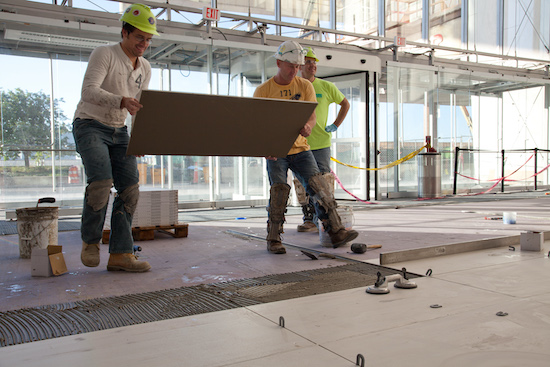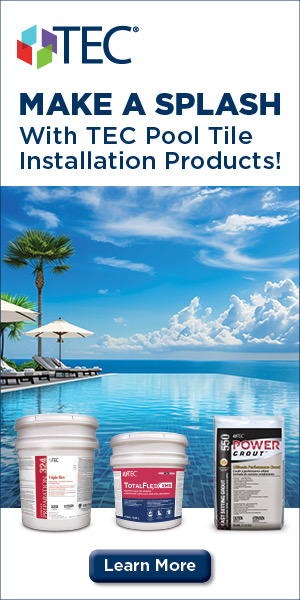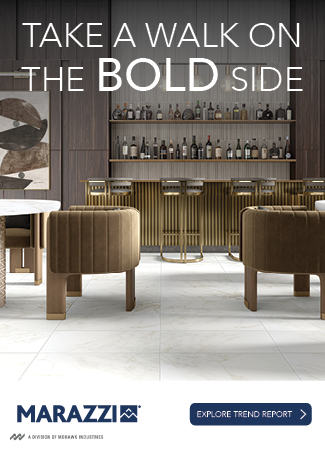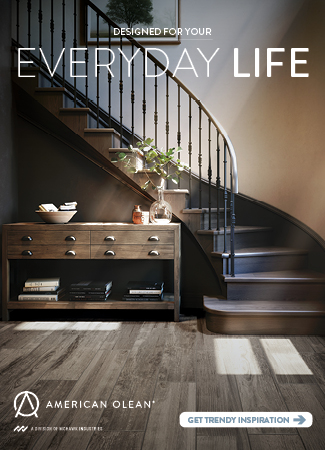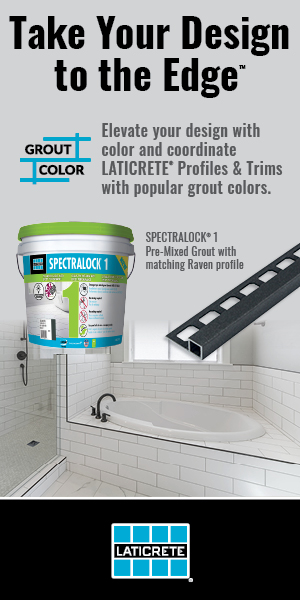– sponsored content –
Different Mortar Types
With all the different mortars out there, it can be confusing to understand all your options. Types of mortar for tile setting include dry-set (unmodified), polymer-modified, and epoxy grout and mortar. The polymer-modified type of mortar evolved from dry-set mortars after technology advanced to the point where polymers became powdered and included in each bag. This allowed more challenging installations such as larger tiles, heavier tile, glass, and more to be completed with confidence.
ANSI Standards for Polymer-Modified Mortars
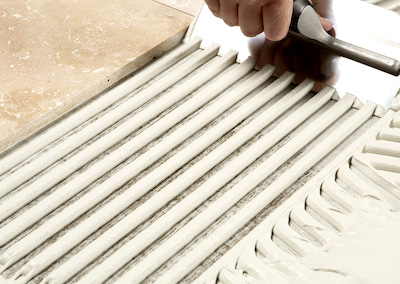

Polymer-modified mortars have better performance and handling characteristics than dry set mortars which are composed of sand, cement, and lime. There are three different American National Standards Institute (ANSI) standards for polymer-modified mortars: A118.4 American National Standard Specifications for Modified Dry-Set Cement Mortar and A118.15 American National Standard Specifications for Improved Modified Dry-Set Cement Mortar. The A118.15 specification uses the same tests as ANSI A118.4 but has stricter requirements. ANSI A118.15 mortars are the best performing mortars available today. A118.11 American National Standard Specifications for EGP (Exterior Glue Plywood) Latex-Portland Cement Mortar is also a polymer-modified ANSI standard but is specific to bonding to EGP (Exterior Glue Plywood). Most, if not all, ANSI A118.15 mortars meet/exceed ANSI A118.11 specifications. Additionally, ANSI designates further if more requirements are met. There is a designation of “E” for extended open time, “T” for sag resistance on vertical surfaces, “H” for large and heavy tile, and “F” for fast set. These extra letters are listed after the ANSI specification.
High-Performance Mortars – When Necessary for Success
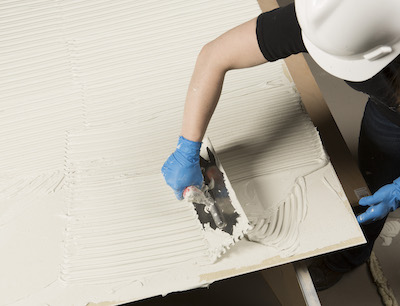

There are some examples where a high-performance mortar is crucial for a successful installation including exteriors, facades, submerged, and gauged porcelain panels. The extra benefits of having an ANSI A118.15 mortar for these types of installations are key, including extra bond strength, long open time, freeze-thaw stability, and water immersion. Because these mortars are highly engineered, they typically come with a longer limited product warranty as well, meaning the customer has more peace of mind when choosing to take the step up to the high-performance mortars. Contact the mortar manufacturer for specific details.
TEC® Introduces Two New High Performance Mortars
TotalFlex® 110 and TotalFlex® 150 are the newest mortars from TEC and are both part of this high-performance category. They are both ultra-versatile, meaning that they can be used on tiles as small as mosaics, as large as gauged porcelain tile panels/slabs, and everything in between. TotalFlex 110 meets/exceeds ANSI A118.4HTE and A118.11 while TotalFlex 150 meets/exceeds ANSI A118.4HTE, A118.11, and A118.15HTE. Both TotalFlex mortars can be used with exterior and submerged installations, and used to set uncoupling membranes. There is no intentionally added silica in these mortars, they are extremely easy- to-trowel, and they include the “H” (large and heavy tile) and “T” (sag-resistance) designations from the standard, so there can be confidence that the tile will stay put once it is set in place.
Polymer-Modified Mortars Cover All the Bases
Polymer-modified mortars have increased bond strengths, extended open times, and much more. They can cover all your bases when it comes to a successful tile installation, and last for years to come. Be sure to read the mortar’s product data sheet for more information.
Article written by Curtis Buck.


